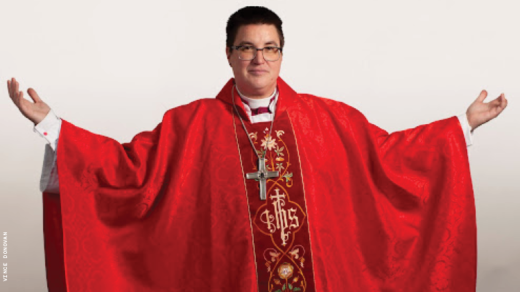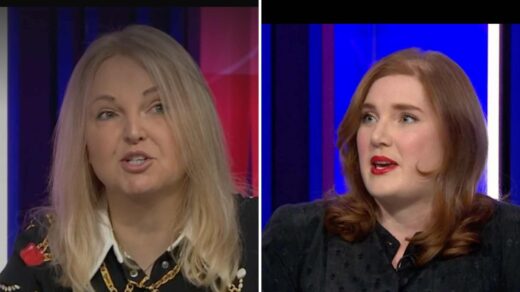Why Do Gay Men Hate Gay Reality Stars?
Author: Neal Broverman
Tacky. Phony. Unwatchable. The Twitter reviews of MTV’s newest reality show, The Real Friends of WeHo, were not kind. Ratings for the show — centered on gay men like stylist Brad Goreski, choreographer Todrick Hall, TV host Jaymes Vaughan, and their group of “friends” birthed from central casting — were just as sour, especially for a series that aired in the timeslot between Emmy-winning cultural phenomenon RuPaul’s Drag Race and its popular behind-the-scenes companion series, Untucked.
The online vitriol towards WeHo, much of it generated from LGBTQ+ viewers, lobbed poison-tipped arrows at what is basically the latest piece of hastily-made reality programming featuring upscale people clumsily thrown together and shown spending money, drinking too much, and calling each other names. Truth be told, WeHo is not much different than ratings juggernauts and queer fan favorites like Bravo’s The Real Housewives of Beverly Hills or Vanderpump Rules (both of which often film in West Hollywood). So why did people, especially LGBTQ+ people, so loudly reject the exploits of a group of gay guys? Is the standard for content different when it comes to queer non-competition shows, at least when queer people are watching?
Yes and no, says Zack Peter, host of the Housewives-themed podcast No Filter with Zack Peter. One of the biggest issues with WeHo was not the sexual orientation of the cast but the inauthentic connections between the stars, he says. A reality show always casts its stars, but the most successful feature family dynamics (Housewives of Beverly Hills) or friendships that pre-date the show (Housewives of New Jersey).
“Think of the Real Housewives franchise, it’s been around for so long, we’ve become so savvy that we know real chemistry and we know casting,” Peter says. “We know when someone’s just brought on a show so they’re a name, or when they bring on someone younger to attract a younger audience. These tricks and gimmicks, we see right through it.”

Aside from the issue with “Real Friends” being in the title, Peter said the setting also helped doom the show. In the popular queer imagination, West Hollywood is associated with a gay superficiality that is less aspirational and more exclusionary. Whether true or not, WeHo often brings to mind thick bank accounts, thin waists, and “no fats or femmes” Grindr profiles.
“I don’t personally like WeHo,” says Peter, who resides in downtown L.A. “I don’t go out; I don’t like the association that gay men just love to party and fuck each other, and we all have gang bangs. A good threesome is a good threesome, but I’m a career person. I’m so much more than the fabulosity of being gay and wearing a boa and going to a drag show on Sunday. That’s fun and a great aspect of the community, but there’s so much than that. I wish that would get represented a little more.”
A show about young, attractive gay men working in the entertainment and fashion industries in a place packed with gay bars and restaurants is just too on the nose, Peter says. Instead, he believes a cast featuring a true cross-section of the queer community — doctors, teachers, parents, monogamous couples — and based on preexisting connections would fare much better with a gay audience.
“I want to see a variety of gay men; people who are career-focused or family-focused, relationship- and marriage-focused,” he says. “All the things that break the mold of what people think of as gay men.”
Still, Peter admits that all the gripes against WeHo were not entirely legitimate.
“It’s hard too for gay men; it’s hard for us to root for each other,” he says. “I think it comes down to a deeper-rooted insecurity; we were raised to be unsure of ourselves. The climate is changing and things are shifting, but that inherent judgment we have of ourselves is projected onto judgment we give to other gay men.”
Peter hopes another network takes a stab at a queer-led reality show since, well, gay people are so fun to watch.
“I always think gay men have such rich histories and such big obstacles they’ve had to overcome that they’re going to naturally be entertaining,” Peter says. “Gay men have great wit because we had to develop a personality, a sense of humor, a sharp tongue as a means of defense. Maybe, at the end of the day, WeHo is a good thing because it opened the door and provided an opportunity for more shows like this to come to fruition. I don’t really want to see another Real Friends, but someone has to do it first and then somebody has to come around and do it better.”
Original Article on The Advocate
Author: Neal Broverman





